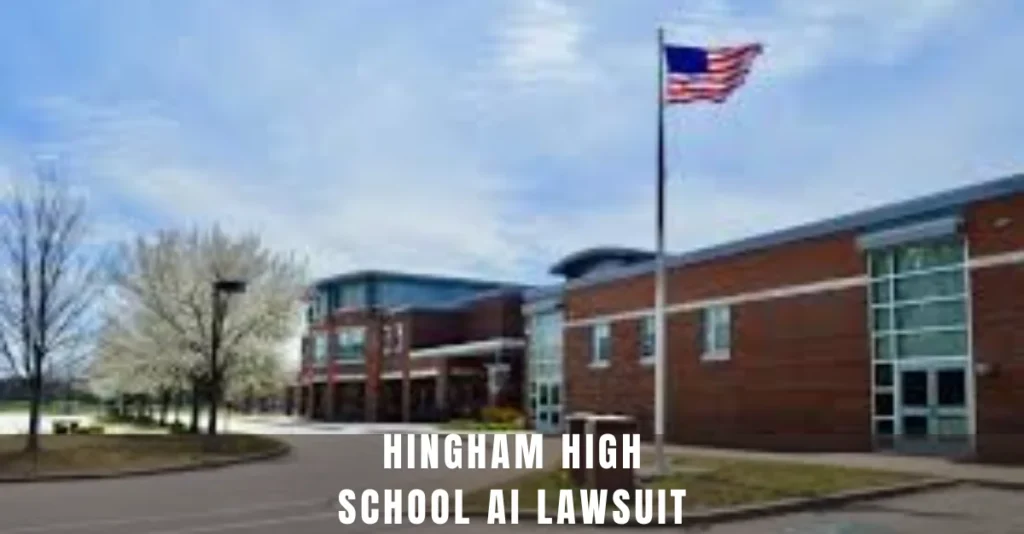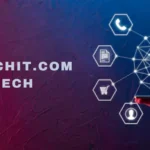Introduction to the Hingham High School AI Lawsuit
The ongoing Hingham High School AI lawsuit has captured the public’s attention and ignited a heated debate about the role of artificial intelligence in education. As schools increasingly turn to technology for support, questions arise about its impact on student rights and ethical boundaries. This case not only raises concerns within the local community but also holds broader implications for how AI is integrated into educational systems nationwide. Dive into this complex issue as we explore the allegations, background, and potential consequences surrounding this landmark legal battle.
Background on Artificial Intelligence in Schools
Artificial Intelligence (AI) has emerged as a transformative tool in education. Schools increasingly use AI to personalize learning experiences and streamline administrative tasks.
From intelligent tutoring systems to automated grading, AI enhances teaching methods and provides data-driven insights into student performance. These technologies aim to cater to individual learning styles, making education more accessible.
However, the integration of AI is not without its challenges. Concerns about privacy and ethical implications are growing. Schools must navigate these issues carefully while leveraging the benefits of AI tools.
As educators embrace innovation, understanding how technology affects students becomes crucial. The balance between advancement and accountability will shape the future landscape of educational environments across the country.
Details of the Alleged Civil Rights Violation
The Hingham High School AI lawsuit centers around claims that the school’s use of artificial intelligence tools led to discriminatory practices against certain students.
Parents allege that these systems unfairly targeted marginalized groups, exacerbating existing inequalities within the educational environment. Reports suggest that AI-driven surveillance may have disproportionately flagged students based on race or socioeconomic status.
Moreover, critics argue that the algorithms used lack transparency and accountability. This raises concerns about how decisions are made regarding student behavior and academic performance.
Students feel their privacy has been invaded without consent. They express anxiety over constant monitoring, which can stifle creativity and expression in a learning space designed for growth.
As this case unfolds, it brings to light essential questions about fairness and ethics in using technology during formative years. The implications could reshape policies surrounding AI deployment in schools nationwide.
Impact on Students and Community
The Hingham High School AI lawsuit has stirred significant concern among students and parents alike. Many are worried about how the alleged civil rights violations could affect their education. Students thrive in environments where they feel safe and respected, yet this situation raises questions about fairness and transparency.
The community is feeling the ripple effects too. Parents are voicing their fears regarding inequitable treatment based on flawed data interpretations from AI systems. This uncertainty can lead to a lack of trust between families and school officials.
Moreover, if these concerns go unaddressed, there may be long-term consequences for student morale and engagement. A supportive educational atmosphere is vital for fostering academic achievement. When that foundation is shaken, everyone feels the impact—students, educators, and families all bear witness to an unfolding crisis that demands attention.
Response from School Officials and Legal Representatives
School officials have publicly acknowledged the lawsuit but maintain that their intent was to enhance educational outcomes. They stress that technology is meant to support students and improve learning experiences.
Legal representatives for Hingham High School argue that the integration of artificial intelligence aligns with modern educational practices. They assert that the school acted within legal boundaries while prioritizing student safety.
In public statements, officials express a commitment to transparency throughout the process. They emphasize collaboration with parents and community members as they navigate these challenges.
However, some critics feel this response lacks acknowledgment of deeper concerns surrounding AI’s ethical implications in education. The dialogue continues as stakeholders seek clarity on how these technologies will shape future learning environments.
Similar Cases and Precedents
Across the United States, various cases have emerged that highlight concerns about AI’s role in education and civil rights. One notable example is the lawsuit filed against a school district in California over biased algorithms used for student assessments. Parents argued these systems disproportionately affected minority students.
Another significant case involved the use of predictive analytics to determine student behavior in Texas schools. Critics claimed it violated privacy rights and led to unjust disciplinary actions.
These precedents underscore a growing unease surrounding AI technologies within educational settings. Advocates emphasize the need for transparency and accountability when implementing such tools.
As more districts explore AI solutions, examining past legal battles becomes essential. These cases serve as cautionary tales, reminding educators and policymakers of their responsibility to protect every student’s rights while adopting innovative technologies.
The Future of AI in Education and Potential Reforms
As artificial intelligence continues to evolve, its role in education faces scrutiny and potential reform. Schools must balance innovation with ethical considerations.
AI can personalize learning experiences, tailoring lessons to individual student needs. However, the risks of bias and data privacy concerns cannot be ignored.
Future reforms may include stricter regulations on AI use within educational settings. Transparency in algorithms will become essential for gaining trust among students and parents alike.
Collaborative efforts between educators, technologists, and policymakers could lead to best practices that prioritize student welfare. Professional development for teachers is crucial so they can effectively integrate AI tools without compromising their values or responsibilities.
The landscape of education is shifting rapidly. Embracing AI responsibly could enhance learning while safeguarding civil rights and ensuring equity for all students.
Conclusion: Importance of Ethical Implementation of AI in Schools
As the Hingham High School AI lawsuit unfolds, it raises significant questions about the ethical implications of using artificial intelligence in educational settings. Schools are increasingly adopting technology to enhance learning experiences and streamline administrative processes. However, this case shines a light on potential civil rights violations that can occur when these tools are not implemented thoughtfully.
The responsible integration of AI should prioritize student welfare above all else. It’s crucial for educators and administrators to understand how their choices impact students’ lives. Transparent policies and clear communication between schools, parents, and students can help bridge gaps in understanding.
Educational institutions must be held accountable for ensuring that new technologies do not perpetuate discrimination or infringe on individual rights. This case serves as a reminder that with innovation comes responsibility.
Moving forward, fostering an environment where ethics guide technological advancements will be essential. By placing emphasis on equitable practices in AI usage within schools, we can work towards creating safer and more inclusive educational spaces for every student.
FAQs
What is the “Hingham High School AI lawsuit”?
The “Hingham High School AI lawsuit” refers to a legal case where the school is accused of civil rights violations due to discriminatory practices from AI tools used in education.
How did AI allegedly violate civil rights at Hingham High School?
AI systems were claimed to have unfairly targeted marginalized students based on race or socioeconomic status, raising concerns about privacy and ethical implications.
What are the concerns regarding AI’s use in schools?
Concerns include biased algorithms, privacy invasion, lack of transparency, and the potential for AI to exacerbate existing inequalities in education.
How have Hingham High School officials responded to the lawsuit?
School officials argue that AI was implemented to improve educational outcomes and have committed to transparency and collaboration with parents during the process.
What reforms could be made in the future regarding AI in education?
Future reforms may focus on stricter regulations, transparency in algorithms, and ensuring that AI tools are implemented ethically and equitably in schools.







